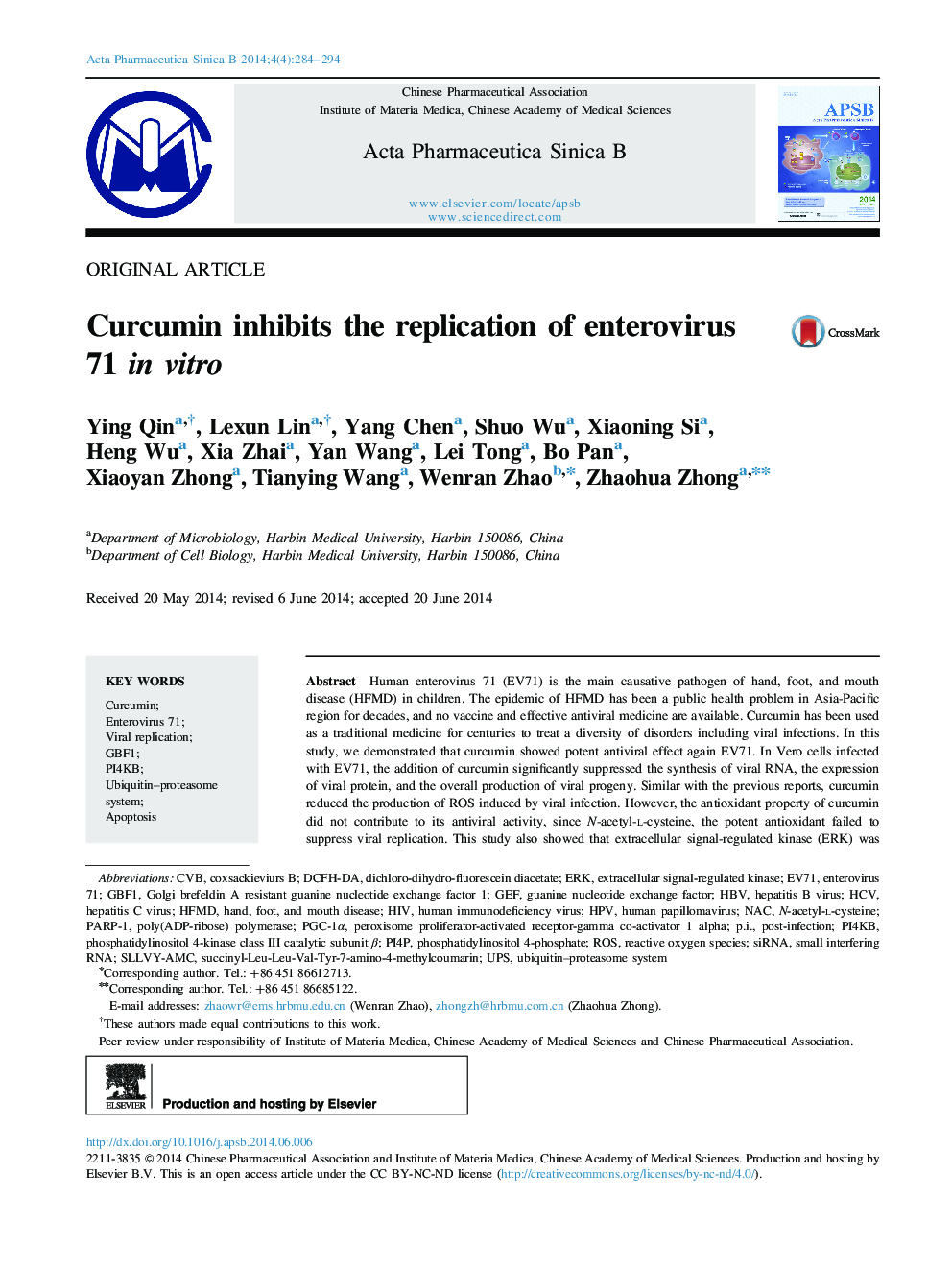| Article ID | Journal | Published Year | Pages | File Type |
|---|---|---|---|---|
| 2474476 | Acta Pharmaceutica Sinica B | 2014 | 11 Pages |
Human enterovirus 71 (EV71) is the main causative pathogen of hand, foot, and mouth disease (HFMD) in children. The epidemic of HFMD has been a public health problem in Asia-Pacific region for decades, and no vaccine and effective antiviral medicine are available. Curcumin has been used as a traditional medicine for centuries to treat a diversity of disorders including viral infections. In this study, we demonstrated that curcumin showed potent antiviral effect again EV71. In Vero cells infected with EV71, the addition of curcumin significantly suppressed the synthesis of viral RNA, the expression of viral protein, and the overall production of viral progeny. Similar with the previous reports, curcumin reduced the production of ROS induced by viral infection. However, the antioxidant property of curcumin did not contribute to its antiviral activity, since N-acetyl-l-cysteine, the potent antioxidant failed to suppress viral replication. This study also showed that extracellular signal-regulated kinase (ERK) was activated by either viral infection or curcumin treatment, but the activated ERK did not interfere with the antiviral effect of curcumin, indicating ERK is not involved in the antiviral mechanism of curcumin. Unlike the previous reports that curcumin inhibited protein degradation through ubiquitin–proteasome system (UPS), we found that curcumin had no impact on UPS in control cells. However, curcumin did reduce the activity of proteasomes which was increased by viral infection. In addition, the accumulation of the short-lived proteins, p53 and p21, was increased by the treatment of curcumin in EV71-infected cells. We further probed the antiviral mechanism of curcumin by examining the expression of GBF1 and PI4KB, both of which are required for the formation of viral replication complex. We found that curcumin significantly reduced the level of both proteins. Moreover, the decreased expression of either GBF1 or PI4KB by the application of siRNAs was sufficient to suppress viral replication. We also demonstrated that curcumin showed anti-apoptotic activity at the early stage of viral infection. The results of this study provide solid evidence that curcumin has potent anti-EV71 activity. Whether or not the down-regulated GBF1 and PI4KB by curcumin contribute to its antiviral effect needs further studies.
Graphical abstractCurcumin shows potent anti EV71 effect through down-regulating GBF1 and PI4KB, both of which may required for the assembly of viral RNA replication complex. The knockdown of both GBF1 and PI4KB is sufficient to reduce EV71 replication. Curvumin׳s inhibition on the activity of proteasomes also contributes to its antiviral activity, while the functional proteasomes are required for EV71 replication.Figure optionsDownload full-size imageDownload as PowerPoint slide
